‘Playful entrepreneurs’ showcase innovations, as new book rethinks work culture
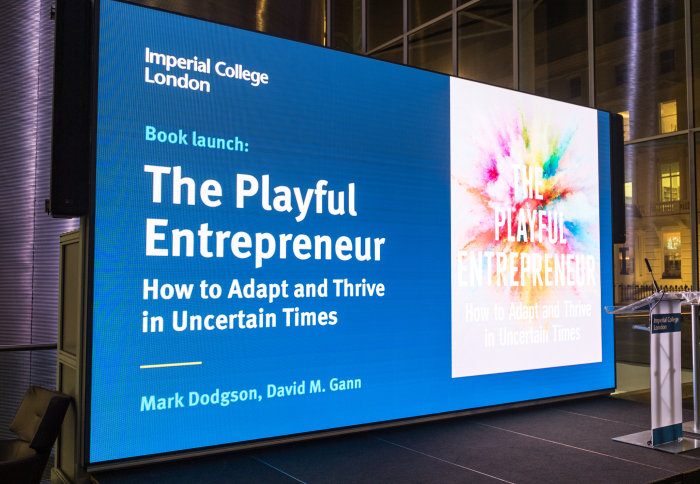
A major new book about the future of work by two academics launched with a showcase of student entrepreneurship.
'The Playful Entrepreneur’ by Professors David Gann and Mark Dodgson, both affiliated to Imperial College Business School, makes the case that “incorporating play into work” can help overcome the uncertainty and turbulence that surrounds the modern workplace.
As the book launched at Imperial, a group of student and alumni entrepreneurs demonstrated their innovations to an audience of business and academic leaders.
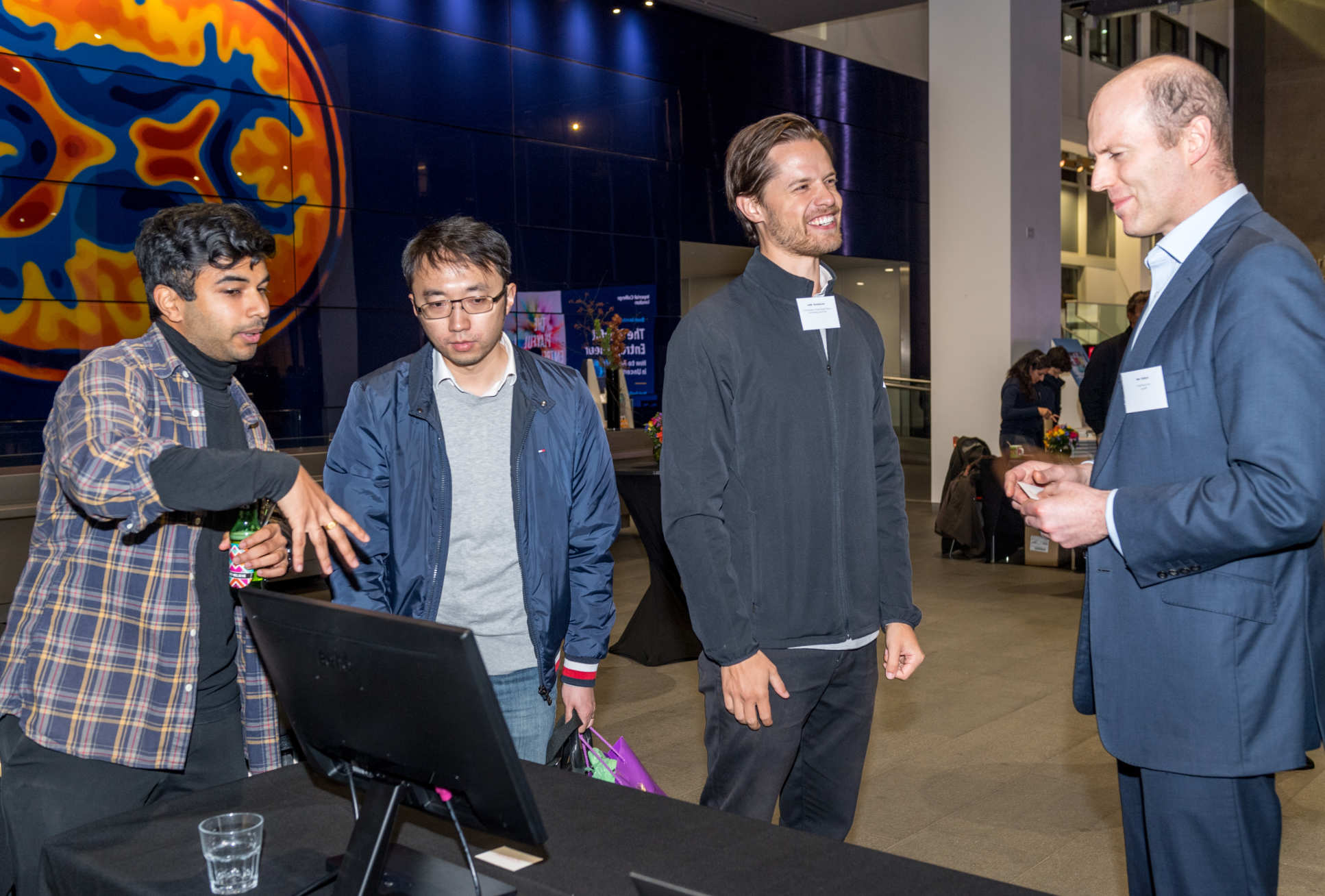
Among the rapidly growing Imperial startups at the event were:
• BlakBear, which develops air and water quality sensors
• Emit, which uses psychology around time and auto-suggestion to nudge users into becoming more productive
• Humanising Autonomy, which helps autonomous vehicles to better interact with pedestrians and urban environments
• Mitt, a firm developing comfy, easy-to-use and affordable artificial limbs
• ThinAir, a startup using biomembranes to collect clean and sustainable water
Post-crash enterprise
Professor Gann praised their innovations, and said: “Entrepreneurship at Imperial has changed a lot since the 2008 crash. We have more social enterprise – not just making money, but money with a purpose – and we can learn a lot from those people trying to change the world… Imperial entrepreneurs are moving away from the aggressive image of entrepreneurship, to one that is rooted in deep science and is ultimately more playful.”

Business leader Baroness (Denise) Kingsmill of Holland Park, who recently chaired rapidly growing bank Monzo, spoke about the importance of playfulness and “creative discomfort” to encourage innovation in small and large enterprises.

Professor Dodgson, Chair of Innovation Studies at the University of Queensland Business School, looked back on “Doing a PhD here 35 years ago in a dungeon down the road” where he enjoyed a “playful, argumentative, stimulating” student experience that was vastly more interesting than his previous working life.
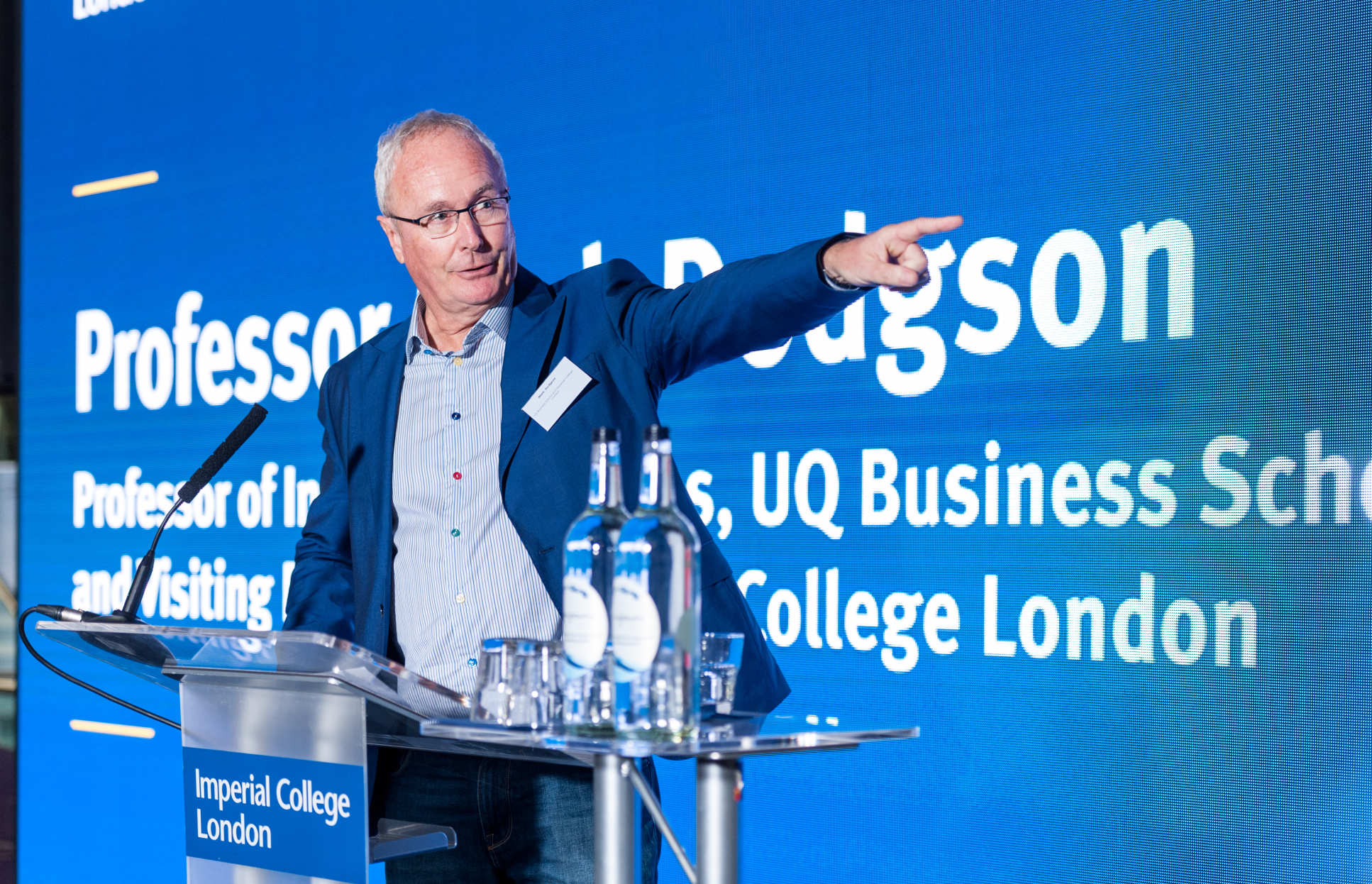
Overcoming uncertainty
Professors Gann and Dodgson, who have collaborated in Britain and Australia for more than 30 years, argue that “Work today is surrounded by uncertainty and turbulence. The technologies of the Fourth Industrial Revolution, such as AI, pose huge challenges for the quantity and quality of work in many manual and professional spheres. Investments move quickly between countries. Massive new businesses emerge in the space of a few years, and long-established businesses can go bust overnight.”
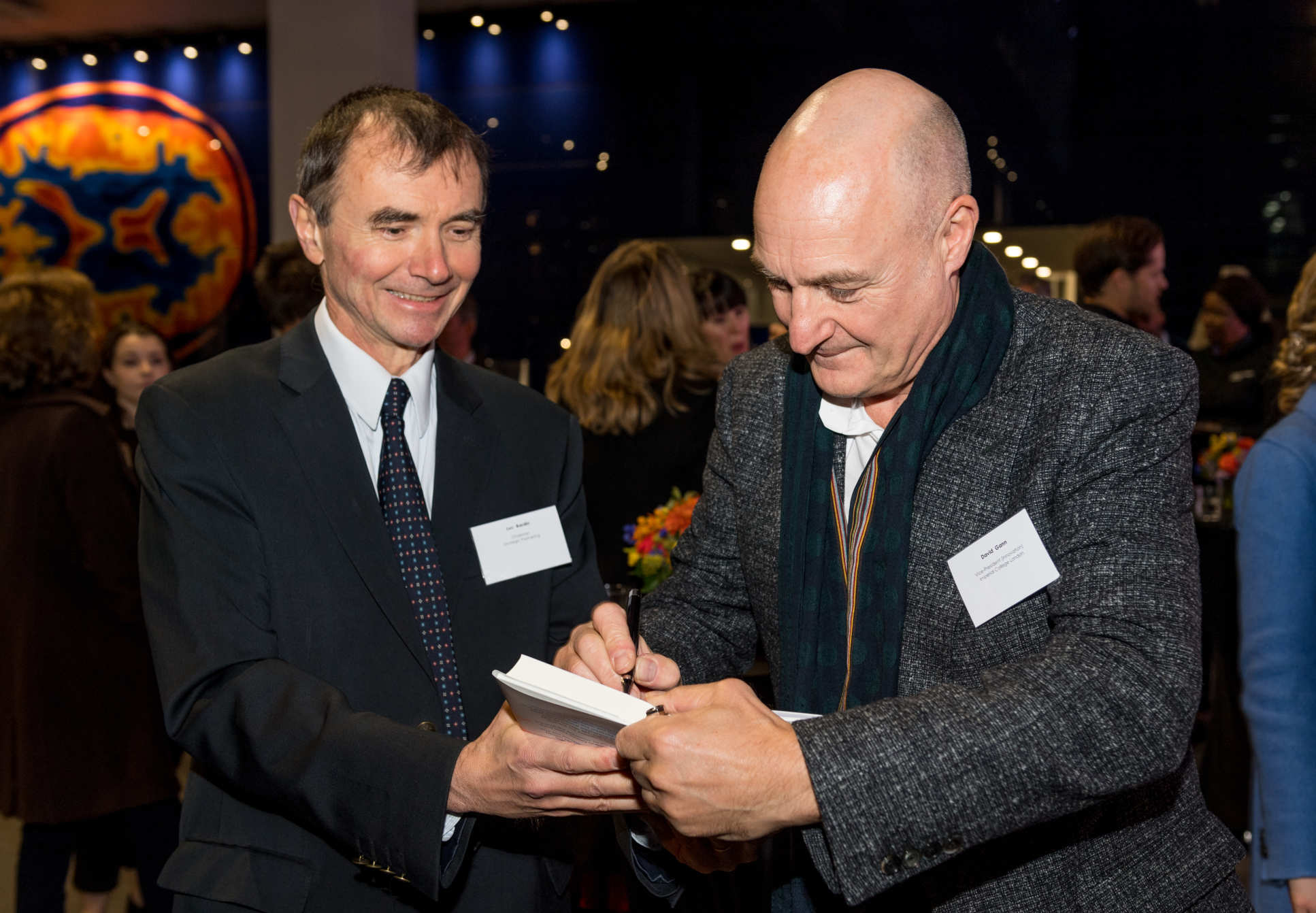
In this era, “As the number of entrepreneurs in the world of work increases, they offer lessons for everyone on how to become more entrepreneurial. Whether working in a large company, in the public or the third sector, the key to having a sustainable and satisfying working life lies in emulating the qualities of entrepreneurs.”
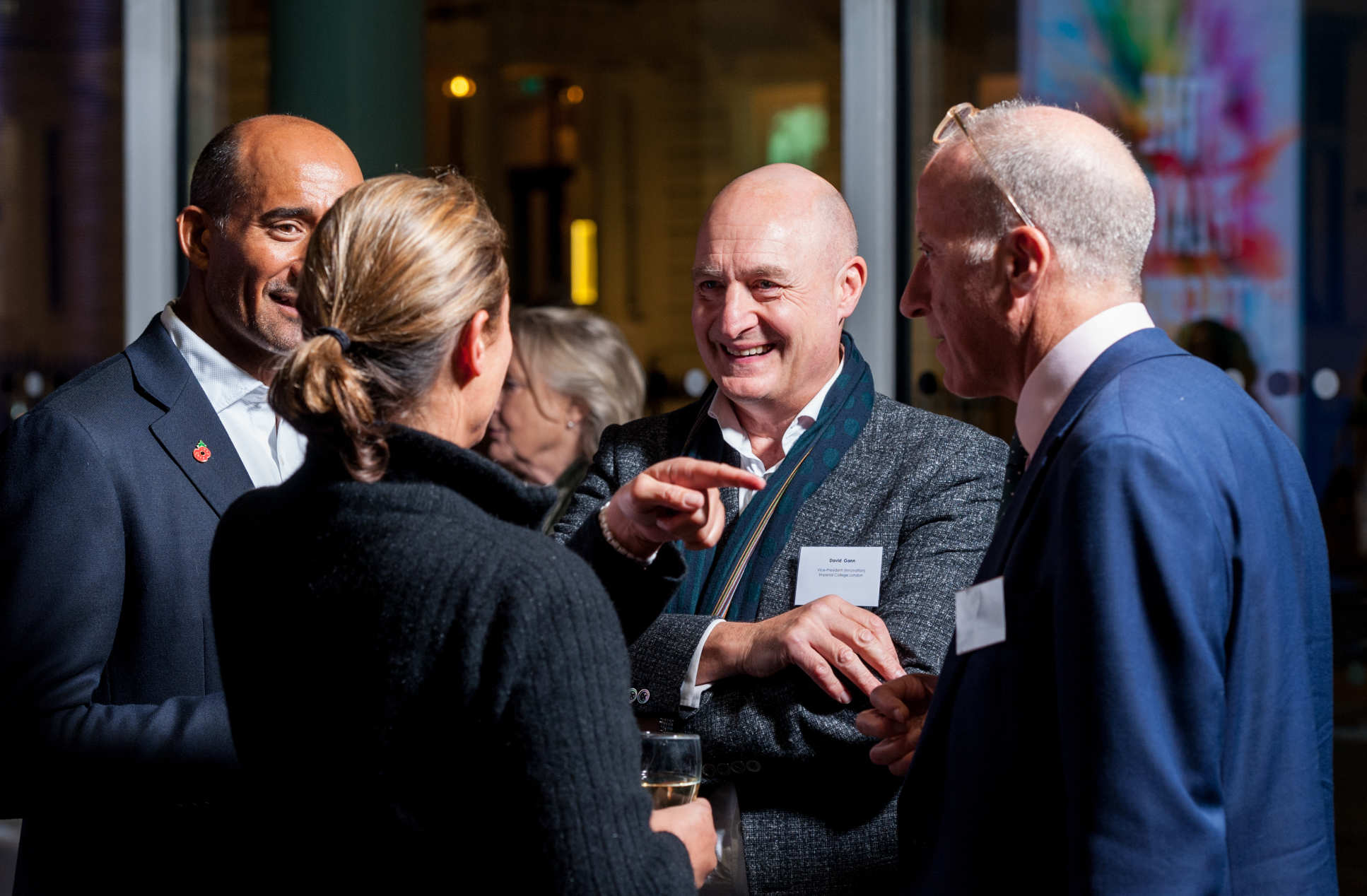

Professor Gann, Imperial’s Vice President (Innovation), and Professor Dodgson said: “One of the characteristics of entrepreneurs that we’ve been studying for years is their capacity to play. Their play is not foolish or indulgent, but a purposeful strategy pursued by people to give them distinctive advantages at work. This play is directed towards learning and adapting, and involves experimenting and exploring new ways of doing things. It is how people express their freedom to choose how they are going to work - to decide and not be told. Importantly, play is fun, and a workplace where there is enjoyment and laughter is more likely to be productive and capable of attracting and retaining talented staff.”
The authors say that we can all learn from entrepreneurs to show fortitude, ambition, craft and grace, to lead more fulfilling working lives – a case they recently made in a blog for the World Economic Forum.
Article text (excluding photos or graphics) © Imperial College London.
Photos and graphics subject to third party copyright used with permission or © Imperial College London.
Reporter
Andrew Scheuber
Communications Division